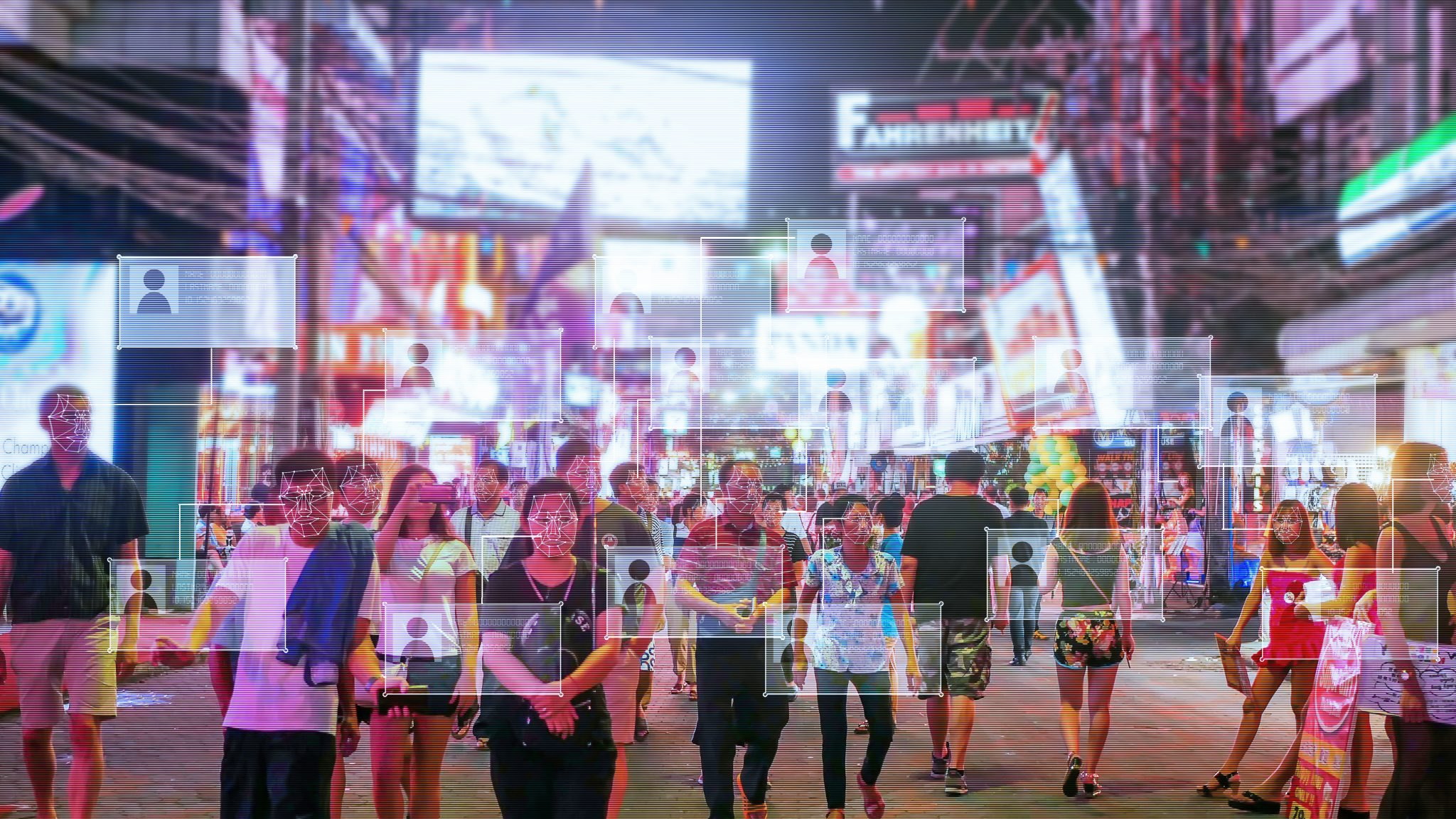Project Insights Report
The Impact of Artificial Intelligence on Employment, Productivity and Skills Development in Quebec
Impact of Automation and AI on the Workforce in Quebec
 Executive Summary
Executive Summary
This research project aimed to produce a report on the impacts of artificial intelligence (AI) on the Quebec labour market. In particular, the team worked to classify all current jobs in the Quebec labour market and identify which ones are threatened by AI, as well as the number of workers that would ultimately be affected. Finally, the team developed a list of the conditions necessary for the deployment of AI, along with a list of recommendations for stakeholders. To achieve these objectives, the Institut du Québec—a public policy research institute—relied on a methodology already implemented in an international study conducted by the Organisation for Economic Co-operation and Development (OECD) and adapted it to the Quebec context.
Key Insights
Currently, AI technology is not capable of replacing human strengths such as social intelligence, creativity (so-called “soft skills”) or the ability to do complex physical tasks.
The study found that 810,000 workers’ jobs, representing 96 individual occupations, in Quebec are at high risk of automation by AI.
Young people aged 15 to 24 are most at risk of losing their jobs due to AI automation. The situation is particularly concerning for young people who choose not to pursue postsecondary education.
Postsecondary graduation is the best way to avoid losing a job to automation. This is in large part because individuals with postsecondary education can rely on their many soft skills, which remain too complicated for AI to master.
For AI to increase the productivity of the Quebec economy, it should not be employed solely to replace humans.
 The Issue
The Issue
Technological advancement since the industrial era has always raised fears among workers whose jobs might change or be eliminated due to automation. The arrival of AI is thus part of a long history. Initially, AI was used to recognize human voices or writing, and as it evolved, it gained the ability to understand and analyze them. Ultimately, we have reached a point where certain complex, non-repetitive tasks (such as generating computer code) can be performed by AI, putting more jobs at risk than we might have thought just a few years ago.
Since the advent of generative AI (like ChatGPT and the like), public adoption has been rapid: within two years, 39% of the US population reported having used generative AI, while the adoption of other technologies like smartphones and tablets took five years to reach the same level of uptake. However, adoption by Canadian and Quebec companies has been less rapid: only 12% of Quebec businesses have adopted it to produce goods and services. Given the power of generative AI, the following questions arise: What will be its consequences? Will we be replaced by machines at work? If so, which professions will be affected? These are the kinds of questions that the project team sought to answer.

 What We Investigated
What We Investigated
To determine how many jobs could be replaced by AI, the project team employed a methodology already developed and used by several researchers in the field of artificial intelligence and employment. In particular, the works of Frey and Osborne (2013) and the OECD (2019) — which studied the impacts of AI on jobs worldwide—were applied to the Quebec context. Specifically, the methodology allowed the team to identify occupations in which more than 70% of jobs are at risk of being fully automated in the foreseeable future. From this group, the team extracted jobs for which career transitions triggered by automation are deemed “acceptable” according to the OECD. These acceptable transitions involve or require:
- a maximum of six months of training before being able to occupy a job that is not at high risk of automation;
- a modest increase in literacy and numeracy skills;
- similarities in the skills required (e.g., technology, management and communication skills);
- at least one common field of study with the current job (e.g., a worker in accounting transitioning to a financial analysis role, where both require a background in finance or business administration);
- a salary reduction of less than 10% and/or;
- a transition that does not result in significant overqualification in literacy and numeracy skills (i.e., the new job should not require much lower skill levels than the worker already possesses).
 What We’re Learning
What We’re Learning
The team estimates that 810,000 workers in 96 occupations will be threatened by the advance of AI
This group, which represents 18% of the active workforce in Quebec, holds positions that will be changed or eliminated by AI in the future. Moreover, this group cannot easily retrain for positions less threatened by AI. This group is made up of various demographic subgroups. While women represent 48% of the population in Quebec, they account for 52% of the workforce vulnerable to automation. Among newcomers, the situation is not one of overrepresentation in the vulnerable population (as is the case for women), but rather underrepresentation. They make up 26% of the active workforce but only 17% of the vulnerable population.
Young people may be most at risk
The highest percentage was among young people (ages 15 to 24), who make up only 13% of the active workforce yet constitute 24% of the threatened workforce. This high number is partially due to the large number of young people who hold temporary positions already at risk from AI, such as in sales or restaurant jobs. Much of this is not too concerning because these young people are typically pursuing postsecondary education and often end up in positions in other sectors less likely to be automated. However, young people who do not pursue postsecondary education are at high risk of experiencing negative effects from the rise of AI because, without further education, they are not qualified for less-threatened positions. Furthermore, young people with a postsecondary degree possess more transferable skills highly sought after by employers, skills that AI has not yet mastered. The team analyzed the distribution of the population vulnerable to automation based on the highest level of education and found that the group without diplomas represented 27% of the vulnerable population, while the two groups with college diplomas or university degrees represented only 14% and 8%, respectively.
Occupations requiring a postsecondary diploma/degree are still affected, but in a different way
For many of these positions, the advancement of AI may change the occupation without necessarily eliminating it, unlike with other jobs (e.g., cashier). These jobs are likely to evolve so that workers will perform tasks that AI is not capable of doing. Thus, AI is seen as complementary and could add value to such occupations, making the Quebec economy more competitive and productive.
For AI to increase productivity in the economy, it should not be used solely to replace humans
Indeed, AI has already eliminated jobs, and it will eliminate more. But businesses should also use AI to reduce tasks that are better accomplished by AI, freeing up their employees to handle more complex and rewarding tasks, thus making the businesses more competitive and efficient. Ultimately, this shift will lead to the creation of jobs related to AI usage and digital transformation services.
 Why It Matters
Why It Matters
Studies like these help policymakers as well as funders like the Future Skills Centre advance collective thinking around how best to respond to the rapidly changing labour market brought about by the arrival of generative AI. Often, opinions on what to do to protect jobs or encourage businesses to be innovative fail to take into account each other’s perspective, leading to fragmented policy development. L’Institut du Québec’s work has shown that there is space for dialogue.
Some workers will lose jobs, but new jobs will also be created
It is easy to believe that the arrival of a new, disruptive technology will eventually lead to a massive exodus of workers from the labour market, which is why studies like this one are crucial in reminding us that the reality has always been different. Indeed, every generation has disrupted the labour market by introducing new technology to make tasks more efficient, and this has led to the replacement of human workers by machines. But the overall result of such transformations has also been the creation of new jobs.

State of Skills:
Unleashing AI into the Skills Development Ecosystem
FSC-supported AI tools have bolstered outcomes in skills matching, career development guidance, and recruitment. The overall effectiveness of these tools was underpinned by recognizing and mitigating the inherent bias and discrimination embedded into these technologies.
Vulnerable workers will need targeted retraining programs
Despite the creation of new jobs, it is essential to acknowledge the threats that AI poses to certain workers who cannot easily retrain for other jobs. Policymakers must take this into consideration and create targeted retraining programs for the most vulnerable groups of workers.
This study’s methodology provides a framework for other Canadian studies
What will be the consequences for the labour market in each Canadian province and territory? This study offers a methodology well suited to the current Canadian context, and now is the time to act. Policymakers should consider funding such studies to better understand the needs of workers in their respective provinces or territories.
More from FSC
Automation technologies and Canada's labour market: Measuring the totality of exposure
Future of Work Skills Development Program
Facilitating Access to Skilled Talent
Have questions about our work? Do you need access to a report in English or French? Please contact communications@fsc-ccf.ca.
How to Cite This Report
Richter, S. (2024). Project Insights Report: Impacts de l’intelligence artificielle pour l’emploi, la productivité et le développement des compétences au Québec, Institut du Québec. Toronto: Future Skills Centre. https://fsc-ccf.ca/research/impact-of-ai/
The Impact of Artificial Intelligence on Employment, Productivity and Skills Development in Quebec is funded by the Government of Canada’s Future Skills Program. The opinions and interpretations in this publication are those of the author and do not necessarily reflect those of the Government of Canada.




